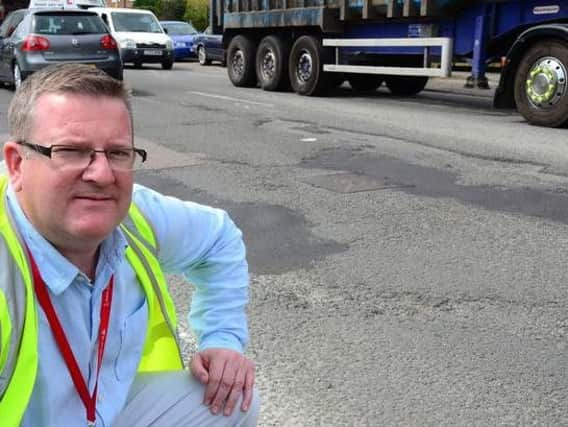Cllr Mark Shaw pens open letter to address "misconceptions" about Transport for Buckinghamshire's work


Well, wasn’t winter gritting the hot topic (excuse the irony) last week! We are certainly experiencing a cold snap at the moment, and – understandably – a lot of residents are expressing their concerns. However, it seems there are some misconceptions about what we are and aren’t doing, and so I would like to take some examples from last week’s letters page in the Herald and Advertiser, and address them as a Q and A, if I may.
Q. “What will it take for transport for Buckinghamshire to invest in our roads?”
Advertisement
Hide AdAdvertisement
Hide AdA: Funding for Transport for Buckinghamshire comes from central government. We are allotted a certain amount every year, and we spend all of it keeping the roads safe.
Q. “Every day I am reading in the Bucks Herald pages about crashed (sic) caused by black ice and people skidding… because of dangerous driving conditions” / “Why are the council not doing enough gritting?”
A: Ice is a fact of life. It is part of the winter weather which we experience around this time of year. In order to help combat ice on the roads, the council has a salting route which covers 44% of the roads in the county (that’s a lot more than most local authorities) when the temperature drops low enough for ice to form. Salting, however, is not a failsafe against ice. We say this every year. And we can’t treat every single road – even if it was possible, salt on the road actually requires enough tyres running over it before the temperature drops, in order to grind it into the road sufficiently to help prevent ice. Therefore, salting roads that are driven on less frequently would not prove very effective. Likewise, even if we have salted, there is only so much the salt can do – when the cold really sets in, even salted roads will still form ice. I could go on, but I will leave it at this – everyone must drive to the conditions of the road. Some people may feel nervous and opt to not take the car out when it’s icy – that is a very smart decision. The ice won’t last long, and if trips out are necessary then walking or catching the bus is a great idea at this time of year. To anyone who is taking the car out – keep your speed low, your de-icer topped up, your cold weather emergency kit in the boot, and don’t get impatient and drive bumper to bumper or attempt overtaking. We cannot control the weather, and ice will form in winter, it’s common sense really. We’ll do what we can with salting the roads, and have designed the salting route to prioritise the busiest roads, access to large residential areas, bus routes, schools, and hospitals among other things. We don’t want anyone to feel isolated by the cold weather, so during this mercifully brief period of winter we generally experience in Buckinghamshire, I think we need to all look out for each other – keep an eye on your elderly or more vulnerable friends and neighbours and if anyone is struggling to get to the shops, the doctors, work, or anywhere, help them out by running the odd errand, giving them a lift, or clearing their driveway when you do yours. Before you know it the temperature will be on the rise and we’ll all be enjoying the summer.
Q. “What happened to Bucks county Council’s gritters over the festive period?... I wonder if the county council had simply told its gritter operators to take the whole period between Christmas and New Year off”
Advertisement
Hide AdAdvertisement
Hide AdA: Every day between October and early April, TfB’s winter team assess forecasts for every part of the county and make a decision whether salting is necessary or not, based on the forecast road surface temperature (which is not always the same as air temperature). Sometimes salting is necessary in the north of the county but not the south, and vice versa. If it is necessary, the team decides what time would be optimal, and how many grammes of salt per metre squared should be spread. This was no different over the Christmas period. I was very pleased to see that on Christmas day itself the temperature was mild and the hardworking gritter drivers were able to stay at home with their families. However, on Boxing day they were indeed out again, salting the roads because the temperatures had fallen, just as they were on the 27th, 28th, 29th, 1st Jan, and the bank holiday Monday. I’d like to express my thanks, once again, to the teams who brave the cold nights to salt the roads and help to make them safer in adverse conditions.
Cllr Mark Shaw, Cabinet Member for Transportation in Buckinghamshire